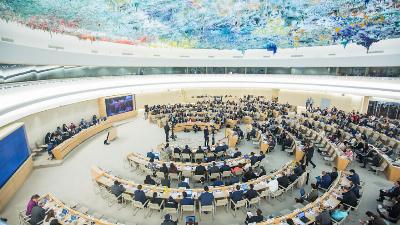"...The appointment last week of Navi Pillay, the former U.N. High Commissioner for Human Rights to head up an investigation of the “root causes” and “systemic abuses” emanating from the 11-day conflict between Israel and Hamas in May comes as no surprise.
The mandate of the investigation is to look at 'all underlying root causes or recurrent tensions, instability and protraction of conflict, including systemic discrimination and repression based on national, ethnic, racial or religious identity.'
In other words, using kangaroo-court vernacular for singling out Israel for defending itself in the face of daily barrages of indiscriminate fire emanating from Hamas rocket-launchers in Gaza. Furthermore, this newly named commission has no specified shelf life and can continue to investigate Israel indefinitely.
We’ve seen this call to criticize before, especially on Pillay’s watch at the U.N. Human Rights Council (UNHRC). During her six-year tenure at the UNHRC in Geneva, she more than once held her thumb on the scale when opining on the Israeli-Palestinian conflict.
In 2010, Pillay oversaw the work of the special commission headed by South African jurist Richard Goldstone, tasked by the UNHRC with investigating the fighting between Israel and Hamas in 2008 and 2009. That report, which was biased against Israel and distorted the facts surrounding that three-week war, concluded that Israel may have been guilty of war crimes...
The United Nations is now in its 76th year, but it has been apparent for decades that many of its agencies and committees, like the Human Rights Council, stocked as they are with countries that participate in bloc voting and who engage in oftentimes mindless herd mentality, can be counted on to pounce on Israel whenever the opportunity presents itself.
Investigations into Israel’s justified responses to rocket attacks from Hamas, or its earlier and current responses to innumerable terrorist attacks, only serve to politicize and marginalize the organization. The United Nations, whose original mission was to promote peace in the international community, now often appears as a mouthpiece for the Palestinian narrative—predictable and yet dangerous because such activity only serves to reward terrorism, and raises expectations of both Hamas and the Palestinian Authority that they have the international community at their backs..."
July 27, 2021
U.N. "Human Rights" Council: When it comes to Israel, still driving on biased retreads

The United Nations Human Rights Council (File photo)
Date
July 27, 2021
Title
UN Human Rights Council: When it comes to Israel, still driving on biased retreads, JNS.org
Author(s)
Daniel Mariaschin
Original Source
